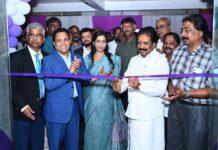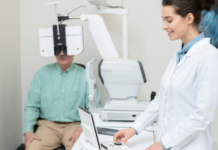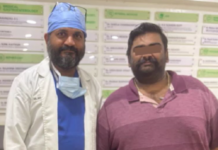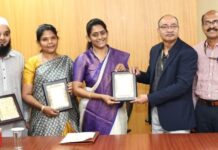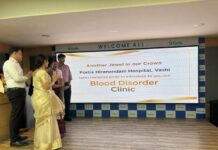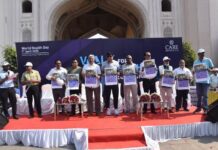New Delhi, 18 Mar, 2015: The Government of India, under National Health Mission, has taken several steps in all the States and UTs with regard to health issues related to women and children.
Programmes/strategy being carried out by the Ministry in this regard is given below:
1. Janani Suraksha Yojana (JSY) The Government of India is implementing Janani Suraksha Yojana (JSY) which is a safe motherhood scheme throughout the country. The objective of the JSY is to reduce maternal and infant mortality by promoting institutional delivery among pregnant women by providing conditional cash assistance.
Important Features of JSY Financial assistance under JSY is available to all pregnant women in those States that have low institutional delivery rates, namely, the states of Uttar Pradesh, Uttarakhand, Bihar, Jharkhand, Madhya Pradesh, Chhattisgarh, Assam, Rajasthan, Odisha, and Jammu and Kashmir are categorized as Low Performing States (LPS). However, in remaining States where the levels of institutional delivery are satisfactory, pregnant women from BPL/SC/ST households only are entitled for JSY benefit. These states are categorized as High Performing States (HPS) under JSY.
Eligibility for Cash Assistance
The eligibility for cash assistance under the JSY is as shown below:
| LPS | All pregnant women delivering in government health centers, such as Sub Centers (SCs)/Primary Health Centers (PHCs)/Community Health Centers (CHCs)/First Referral Units (FRUs)/general wards of district or state hospitals |
| HPS | All BPL/Scheduled Caste/Scheduled Tribe (SC/ST) women delivering in a government health centre, such as SC/PHC/CHC/FRU/general wards of district or state hospital |
| LPS & HPS | All BPL/Scheduled Caste/Scheduled Tribe (SC/ST) women delivering in accredited private institutions |
Cash Assistance for Institutional Delivery (in Rs.)
The cash entitlement for different categories of mothers is as follows:
| Category | Rural area | Total | Urban area | Total | ||
| Mother’s
package |
ASHA’s package* | Mother’s package | ASHA’s package** | |||
| LPS | 1400 | 600 | 2000 | 1000 | 400 | 1400 |
| HPS | 700 | 600 | 1300 | 600 | 400 | 1000 |
*ASHA package of Rs. 600 in rural areas include Rs. 300 for ANC component and Rs. 300 for facilitating institutional delivery.
**ASHA package of Rs. 400 in urban areas include Rs. 200 for ANC component and Rs. 200 for facilitating institutional delivery.
2. Janani Shishu Suraksha Karyakaram (JSSK) The programme has been launched on 1st June, 2011, which entitles all pregnant women delivering in public health institutions to absolutely free and no expense delivery including Caesarean section. The initiative stipulates free drugs, diagnostics, blood and diet, besides free transport from home to institution, between facilities in case of a referral and drop back home. Similar entitlements have been put in place for all sick infants accessing public health institutions for treatment.
Key steps which contribute to improving health of women and children
- Capacity building of health care providers in basic and comprehensive obstetric care including essential newborn care, early diagnosis and case management of common ailments of children. These trainings are on Navjaat Shishu, Suraksha Karyakram (NSSK), Integrated Management of Neonatal and Childhood Illnesses (IMNCI), Facility Based Newborn Care (FBNC), Infant and Young Child Feeding practices (IYCF), etc.
- Operationalization of sub-centers, Primary Health Centres, Community Health Centres and District Hospitals for providing 24×7 basic and comprehensive obstetric care services.
- Emphasis on facility based newborn care at different levels to reduce child morbidity and mortality: Setting up of facilities for care of sick newborn such as Special New Born Care Units (SNCUs), Newborn Stabilization Units (NBSUs) and Newborn Care Corners (NBCCs) at different levels is a thrust area under NHM.
- Mother and Child Tracking System (MCTS): A name based Mother and Child Tracking System has been put in place which is web based to ensure registration and tracking of all pregnant women and new born babies so that provision of regular and complete services to them can be ensured.
- Mother and Child Protection Card in collaboration with the Ministry of Women and Child Development to monitor service delivery for mothers and children.
- Antenatal, Intranatal and Postnatal care including Iron and Folic Acid supplementation to pregnant & lactating women for prevention and treatment of anemia.
- India Newborn Action Plan (INAP) has been launched with an aim to reduce neonatal mortality and stillbirths.
- Newer interventions to reduce newborn mortality- Vitamin K injection at birth, Antenatal corticosteroids for preterm labour, kangaroo mother care and injection gentamicin to young infants in cases of suspected sepsis.
- Intensified Diarrhoea Control Fortnight was observed in August 2014 focusing on ORS and Zinc distribution for management of diarrhoea and feeding practices.
- Integrated Action Plan for Pneumonia and Diarrhoea (IAPPD) launched in four states with highest infant mortality (UP, MP, Bihar and Rajasthan).
- Management of Malnutrition: Nutritional Rehabilitation Centres (NRCs) have been established for management of severe acute malnutrition in children.
- Appropriate Infant and Young Child Feeding practices are being promoted in convergence with Ministry of Woman and Child Development.
- Universal Immunization Programme (UIP): Vaccination protects children against many life threatening diseases such as Tuberculosis, Diphtheria, Pertussis, Polio, Tetanus, Hepatitis B and Measles. Infants are thus immunized against seven vaccine preventable diseases every year. The Government of India supports the vaccine programme by supply of vaccines and syringes, cold chain equipment and provision of operational costs.
- Engagement of more than 8.9 lakhs Accredited Social Health Activists (ASHAs) to generate demand and facilitate accessing of health care services by the community.
- Home Based New Born Care (HBNC): Home based newborn care through ASHAs has been initiated to improve new born practices at the community level and early detection and referral of sick new born babies.
- Rashtriya Bal Swasthya Karyakram (RBSK) for health screening and early intervention services has been launched to provide comprehensive care to all the children in the age group of 0-18 years in the community. The purpose of these services is to improve the overall quality of life of children through early detection of birth defects, diseases, deficiencies, development delays including disability.
- Village Health and Nutrition Days in rural areas as an outreach activity, for provision of maternal and child health services.
- Health and nutrition education to promote dietary diversification, inclusion of iron and folate rich food as well as food items that promote iron absorption.
- Under National Iron Plus Initiative (NIPI), through life cycle approach, age and dose specific IFA supplementation programme is being implemented for the prevention of anaemia among the vulnerable age groups like under-5 children, children of 6 – 10 years of age group, adolescents, pregnant & lactating women and women in reproductive age along with treatment of anaemic children and pregnant mothers at health facilities.CCI Newswire





